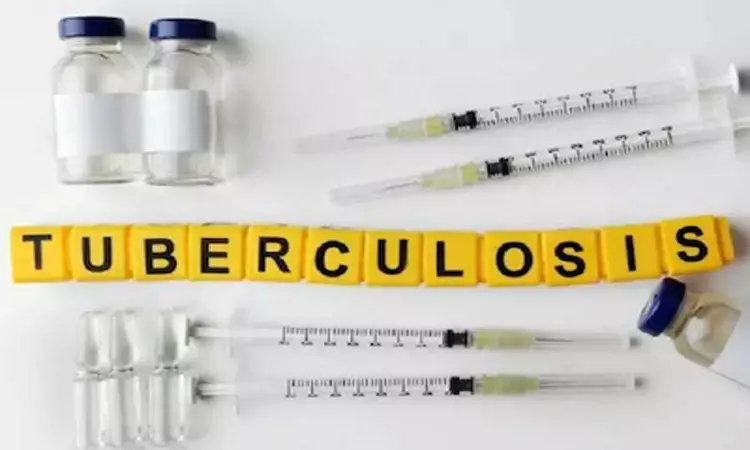- Home
- Medical news & Guidelines
- Anesthesiology
- Cardiology and CTVS
- Critical Care
- Dentistry
- Dermatology
- Diabetes and Endocrinology
- ENT
- Gastroenterology
- Medicine
- Nephrology
- Neurology
- Obstretics-Gynaecology
- Oncology
- Ophthalmology
- Orthopaedics
- Pediatrics-Neonatology
- Psychiatry
- Pulmonology
- Radiology
- Surgery
- Urology
- Laboratory Medicine
- Diet
- Nursing
- Paramedical
- Physiotherapy
- Health news
- Fact Check
- Bone Health Fact Check
- Brain Health Fact Check
- Cancer Related Fact Check
- Child Care Fact Check
- Dental and oral health fact check
- Diabetes and metabolic health fact check
- Diet and Nutrition Fact Check
- Eye and ENT Care Fact Check
- Fitness fact check
- Gut health fact check
- Heart health fact check
- Kidney health fact check
- Medical education fact check
- Men's health fact check
- Respiratory fact check
- Skin and hair care fact check
- Vaccine and Immunization fact check
- Women's health fact check
- AYUSH
- State News
- Andaman and Nicobar Islands
- Andhra Pradesh
- Arunachal Pradesh
- Assam
- Bihar
- Chandigarh
- Chattisgarh
- Dadra and Nagar Haveli
- Daman and Diu
- Delhi
- Goa
- Gujarat
- Haryana
- Himachal Pradesh
- Jammu & Kashmir
- Jharkhand
- Karnataka
- Kerala
- Ladakh
- Lakshadweep
- Madhya Pradesh
- Maharashtra
- Manipur
- Meghalaya
- Mizoram
- Nagaland
- Odisha
- Puducherry
- Punjab
- Rajasthan
- Sikkim
- Tamil Nadu
- Telangana
- Tripura
- Uttar Pradesh
- Uttrakhand
- West Bengal
- Medical Education
- Industry
Researchers develop blood test for early detection of tuberculosis in infants

USA: A highly sensitive blood test that detects a protein secreted by Mycobacterium tuberculosis, which causes TB infection, can help in the early detection of tuberculosis in infants, according to a recent study in BMC Medicine.
The test, which uses only a small blood sample, exhibited high diagnostic sensitivity and specificity for tuberculosis in HIV-infected and HIV-uninfected infants. It has a potential utility for early TB detection and monitoring of anti-TB responses.
The study found that the blood test can find traces of the bacteria that causes tuberculosis in infants a year before they develop the deadly disease,
Using only a small blood sample, the test detects a protein secreted by Mycobacterium tuberculosis, which causes TB infection. It can screen for all forms of TB and rapidly evaluate a patient's response to treatment, said lead study author Tony Hu, Weatherhead Presidential Chair in Biotechnology Innovation at Tulane University.
"This is a breakthrough for infants with tuberculosis because we don't have this kind of screening technology to catch early infections among those youngest groups who are most likely to be undiagnosed," Hu said. "I hope this method can be pushed forward quickly to reach these children as early as possible."
Each year, nearly a million children develop TB and 205,000 die of TB-related causes. More than 80% of childhood TB deaths occur in those under the age of 5. Most of these deaths occur because their disease is undiagnosed as children with TB, particularly infants, usually have symptoms that are not specific for the disease. These children also have difficulty producing the respiratory samples used for TB detection by the best TB tests now in use.
Even when it is possible to obtain these samples from children, they tend to be less effective for diagnosis, since they often contain much less of the bacteria than samples from adults, Hu said. His test's assay, however, uses a small blood sample that can be easily obtained from children of any age to detect a specific protein (CFP-10) that the bacteria secrete to maintain the infection that develops into TB. Since this protein is present at very low levels in the blood, Hu's assay uses an antibody specific for this protein to enrich it from other proteins in blood and a mass spectrometer to detect it with high sensitivity and accuracy.
Hu and his team used this test to screen stored blood samples collected from 284 HIV-infected and 235 children without the virus who participated in a large clinical trial conducted between 2004-2008. Hu's group found their test identified children diagnosed with TB by the current gold-standard TB tests with 100% accuracy. The assay also detected 83.7% of TB cases that were missed by these tests, but that were later diagnosed by a standard checklist employing an array of other information collected by each child's physician (unconfirmed TB cases). Hu's test also detected CFP-10 in 77% of the blood samples that were collected 24 weeks before children were diagnosed with TB by other methods, indicating its strong potential for early TB diagnosis. The biomarker from some positive cases can be detected as early as 60 weeks before their TB diseases were confirmed.
The researchers are working to develop an inexpensive, portable instrument to read the test to allow it to be more easily used in resource-limited settings often encountered in areas where TB is prevalent.
Reference:
The study titled, "Evaluation of a serum-based antigen test for tuberculosis in HIV-exposed infants: a diagnostic accuracy study," is published in BMC Medicine.
DOI: https://bmcmedicine.biomedcentral.com/articles/10.1186/s12916-021-01983-w#Abs1
Hina Zahid Joined Medical Dialogue in 2017 with a passion to work as a Reporter. She coordinates with various national and international journals and association and covers all the stories related to Medical guidelines, Medical Journals, rare medical surgeries as well as all the updates in the medical field. Email: editorial@medicaldialogues.in. Contact no. 011-43720751
Dr Kamal Kant Kohli-MBBS, DTCD- a chest specialist with more than 30 years of practice and a flair for writing clinical articles, Dr Kamal Kant Kohli joined Medical Dialogues as a Chief Editor of Medical News. Besides writing articles, as an editor, he proofreads and verifies all the medical content published on Medical Dialogues including those coming from journals, studies,medical conferences,guidelines etc. Email: drkohli@medicaldialogues.in. Contact no. 011-43720751


